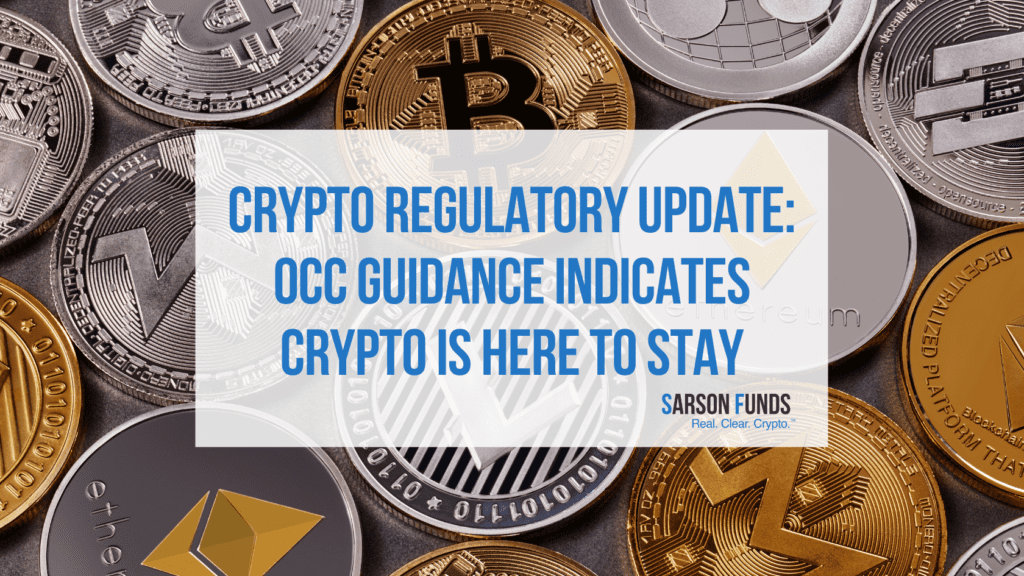
Cryptos are here to stay in 2021. As the ecosystem reaches a $1 trillion total market capitalization, Bitcoin tests new all-time highs, and Wall Street institutions get involved, one thing is clear: crypto isn’t going anywhere. In fact, crypto’s lure over the investment community and financial institutions is forcing regulators to discern proper means of integration as the universal benefits are now unavoidable. As the ecosystem grows, we expect an influx of positive regulatory guidance to surface throughout 2021, making way for yet another decade of crypto domination.
Our hopes for an insurgence of positive crypto regulation derives mostly from the work of former Acting Comptroller of the Currency at the OCC, Brian Brooks, and his efforts to spur nationwide acceptance of crypto assets during his time in office. Formerly the Chief Legal Officer of Coinbase, Brooks focused significant efforts as Acting Comptroller of the Currency to clear a path for widespread crypto adoption.
“Nobody’s going to ban Bitcoin,” Brooks said in a statement on CNBC’s “Squawk Box,” later saying, “We’re very focused on getting this right. We’re very focused on not killing this… And it’s equally important that we develop the networks behind bitcoin and other cryptos as it is that we prevent money laundering and terrorism financing.” Brooks concluded by saying to expect more regulatory clarity in the first few months of 2021.
Brooks’ acknowledgement of the need to develop the use cases for blockchain technology gives us hope that financial regulation will soon shape around cryptocurrencies to prevent fraudulent activities on the blockchain, making for a straighter pathway for universal adoption.
Brooks has been one of the most influential inside advocates for cryptocurrency adoption over the past year. In an interview at October’s DC Fintech Week, Brooks claimed that decentralized finance will soon replace traditional banking services, adding, “decentralization is very likely an unstoppable force out there. Decentralized networks, by definition, are cheaper, faster, and more resilient than any kind of centralized structure.” As internal recognition of the potential of decentralized finance occurs, we expect greater regulatory clarity for decentralized financial services as banks and large-scale financial institutions establish their positions in the space.
Finally, in one of Brooks’ most recent statements, he gave permission for federally chartered banks and financial institutions to build, issue, and use stablecoins for payment activities as well as participate as transaction validators on the blockchain. Brooks’ guidance opens up an entire new horizon for banking capabilities through stablecoins and gives us great hope that further guidelines for large scale crypto use will follow.
While Brooks’ stays in the Office of the Comptroller of the Currency was a short one, much of his work gave the crypto community an inside look on what is to come for crypto regulations in near future, giving us hopes of yet another decade of crypto dominance as an asset class.
By Liam McDonald
Disclosures: Not investment advice. It should be assumed that Sarson Funds or its affiliated managers hold positions in all projects that are discussed. It is not possible to invest in any project directly through Sarson Funds, Inc. or its affiliated managers. Any investment product offered by managers affiliated with Sarson Funds should be assumed to be only available to Accredited Investors and subject to the individual terms and conditions of that offering including but not limited to those eligibility requirements associated with U.S. Securities Regulation D, section 506c. Talk with your financial advisor before making any investment decisions or have them contact Sarson Funds directly at [email protected]








